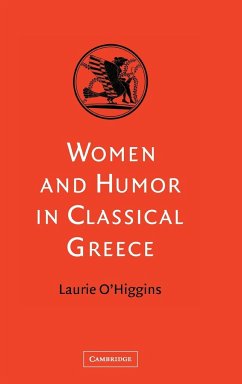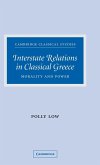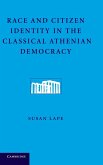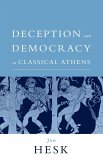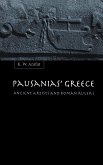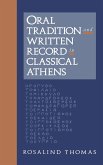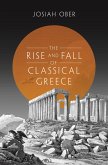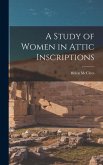Short description/annotation
This examines the role of women as producers of joking speech.
Main description
Women and Humor in Classical Greece examines the role of women as producers of joking speech, especially within cults of Demeter. This speech, sometimes known as aischrologia, had considerable weight and vitality within its cultic context. It also shaped literary traditions, notably iambic and Attic old comedy that has traditionally been regarded as entirely male. The misogyny for which ancient iambic is infamous derives in part from an oral world in which women's derisive joking voices reverberated. O'Higgins considers this speech from its mythical origins in the Homeric Hymn to Demeter, through the reactive iambic tradition and into old comedy. She also examines the poems of Sappho and Corinna as literary jokers, responding in part to their own experience of joking women. The book concludes with a fresh appraisal of the three great 'women's' plays of Aristophanes: Lysistrata, Thesmophoriasouzae, and Ecclesiazousae.
Table of contents:
1. Cultic obscenity in Greece, especially Attica; 2. Iambe and the Hymn to Demeter; 3. Iambic's relationship with the female; 4. Women's iambic voices; 5. Comedy and women; 6. Women at center stage.
Hinweis: Dieser Artikel kann nur an eine deutsche Lieferadresse ausgeliefert werden.
This examines the role of women as producers of joking speech.
Main description
Women and Humor in Classical Greece examines the role of women as producers of joking speech, especially within cults of Demeter. This speech, sometimes known as aischrologia, had considerable weight and vitality within its cultic context. It also shaped literary traditions, notably iambic and Attic old comedy that has traditionally been regarded as entirely male. The misogyny for which ancient iambic is infamous derives in part from an oral world in which women's derisive joking voices reverberated. O'Higgins considers this speech from its mythical origins in the Homeric Hymn to Demeter, through the reactive iambic tradition and into old comedy. She also examines the poems of Sappho and Corinna as literary jokers, responding in part to their own experience of joking women. The book concludes with a fresh appraisal of the three great 'women's' plays of Aristophanes: Lysistrata, Thesmophoriasouzae, and Ecclesiazousae.
Table of contents:
1. Cultic obscenity in Greece, especially Attica; 2. Iambe and the Hymn to Demeter; 3. Iambic's relationship with the female; 4. Women's iambic voices; 5. Comedy and women; 6. Women at center stage.
Hinweis: Dieser Artikel kann nur an eine deutsche Lieferadresse ausgeliefert werden.

